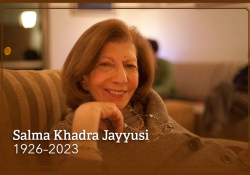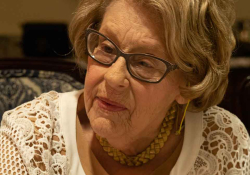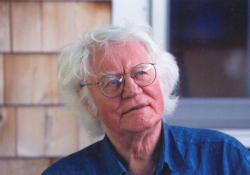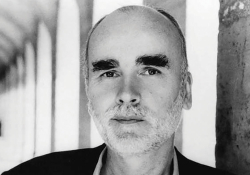The Conscience and Craft of Theodore J. Ziolkowski (1932–2020)
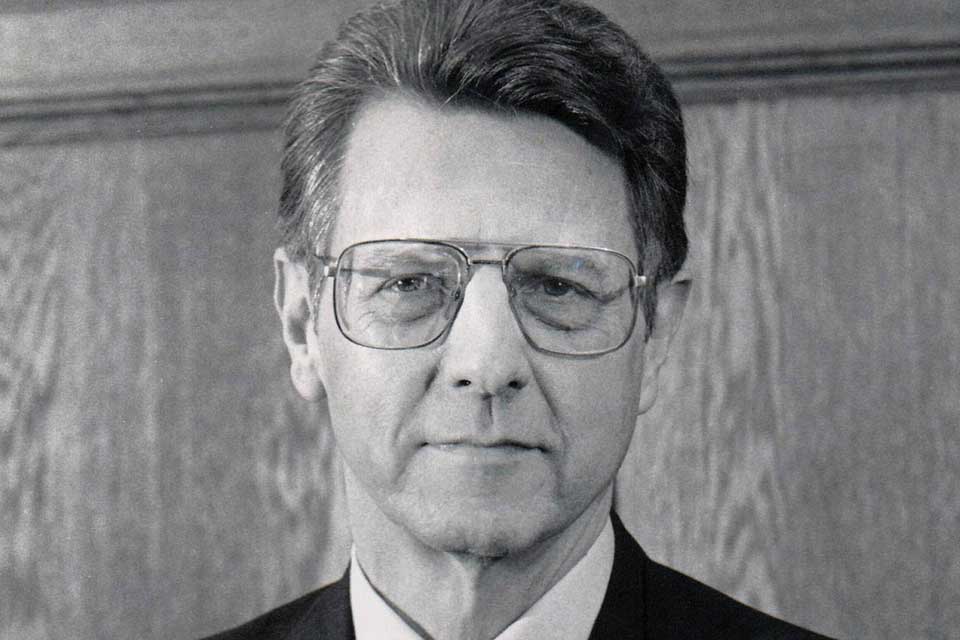
Our strolls through the cemeteries of Berlin, then, are no more funereal and depressing than, say, the performance of Dvořák’s majestic Requiem, which we attended on a Saturday evening in the Berliner Dom (as one in the series of requiems performed annually around Totensonntag.)—Theodore Ziolkowski, “Time Interred: Walks through Berlin’s Cemeteries,” World Literature Today 79, no. 2 (May 2005), 36
Earlier this week, we were deeply saddened by the news that longtime World Literature Today contributor and editorial board member Theodore Ziolkowski had passed away on December 5 in Bethlehem, Pennsylvania, at the age of eighty-eight. Since WLT’s founding in 1927, ten editors have held the editorial reins of this journal; Dr. Ziolkowski’s contributions distinguished the tenure of no fewer than nine of them, including my own. That span is just one measure of an extraordinary life.
Professor Ziolkowski began contributing to these pages in 1957, just as he was finishing his dissertation on Novalis and Hesse at Yale. Beginning with the Spring 1957 issue of Books Abroad, which featured his reviews of a novel by Ernst Schnabel and of a fictional biography by Curt Elwenspoek, Dr. Ziolkowski made nearly 250 bylined contributions to Books Abroad and WLT, surely unmatched by any other scholar during that time period. His first of many scholarly essays, “Heinrich Böll: Conscience and Craft,” appeared in the Summer 1960 issue. In my eighteen years at WLT, I have had the pleasure of publishing his additional essays on Hesse, the bridges and cemeteries of Berlin, “An Arabian Night in Germany,” “Crete in History and Myth,” and the wonderful “Berlin / Berlin” in 2003, a photo-essay on the many temporal layers of his beloved city.
When I shared the news about Dr. Ziolkowski’s passing with Bill Riggan, WLT’s longtime editor, Dr. Riggan replied: “I am greatly saddened to learn of Professor Ziolkowski’s passing, but eternally grateful and honored to have worked with him both in person and via correspondence for nearly three decades. He was a consummate scholar/teacher and a warm, genuine human being as well.” Professor Ziolkowski welcomed me to WLT in 2002 with equal warmth, and he remained exceptionally congenial and generous in his guidance of the journal as a board member and in his encouragement of my work as editor in chief.
Exactly a year ago today, Dr. Ziolkowski sent me a cordial reply to an email: “Thanks for the ms. of your Neustadt anthology. I learned a great deal from it that I had not known! It’s an important contribution to the history of literary scholarship in this country. I’ve been busy in my retirement with various projects—most recently Stages of European Romanticism (2018) and the forthcoming Roman Poets in Modern Guise (2020). But with that one, my thirty-fifth book, I’ve decided to call it quits and restrict myself to the occasional little essay. I’m too old and tired for real research. But our family easily compensates: our daughter Gretchen and our sons Jan and Eric all have books forthcoming—not to mention our granddaughter Saskia and grandson Alexander. So there will be plenty of Ziolkowskis in the bibliographies for the coming years!”
Both Eric and Gretchen have contributed to these pages as well. Obviously, Professor Ziolkowski’s children and grandchildren are already carrying on his legacy, not to mention the many thousands of students he taught and mentored at Yale, Columbia, and Princeton over the years.
Writing about Böll as “one of the most outstanding writers of postwar Germany” in that early essay, Dr. Ziolkowski characterized the writer “as an artist with a passionate love of his craft—a craft, moreover, that is controlled at every point not only by the conscience of the artist, but also by the conscience of the man.” Reflecting on Böll’s acceptance speech upon receiving the 1959 Wuppertaler Kunstpreis, he continued: “This is the credo of an artist of dignity, a writer who loves and respects his craft and who, at the same time, is aware of the full extent of its implications. Böll’s concern ranges from the artist’s fond preoccupation with the word as the smallest structural element in the edifice of a novel, to the moral responsibility of social man for the values expressed in his works. Conscience and craft are the two poles that delimit Böll’s scope as a writer, and neither consideration is given short shrift in his works” (BA, Summer 1960, 213).
A passionate love of craft. Art and literature of dignity and conscience. The moral responsibility of social man. How fortunate for Professor Ziolkowski’s many students, colleagues, and readers that he exemplified such traits in his own life and work. May he long be remembered.
University of Oklahoma

